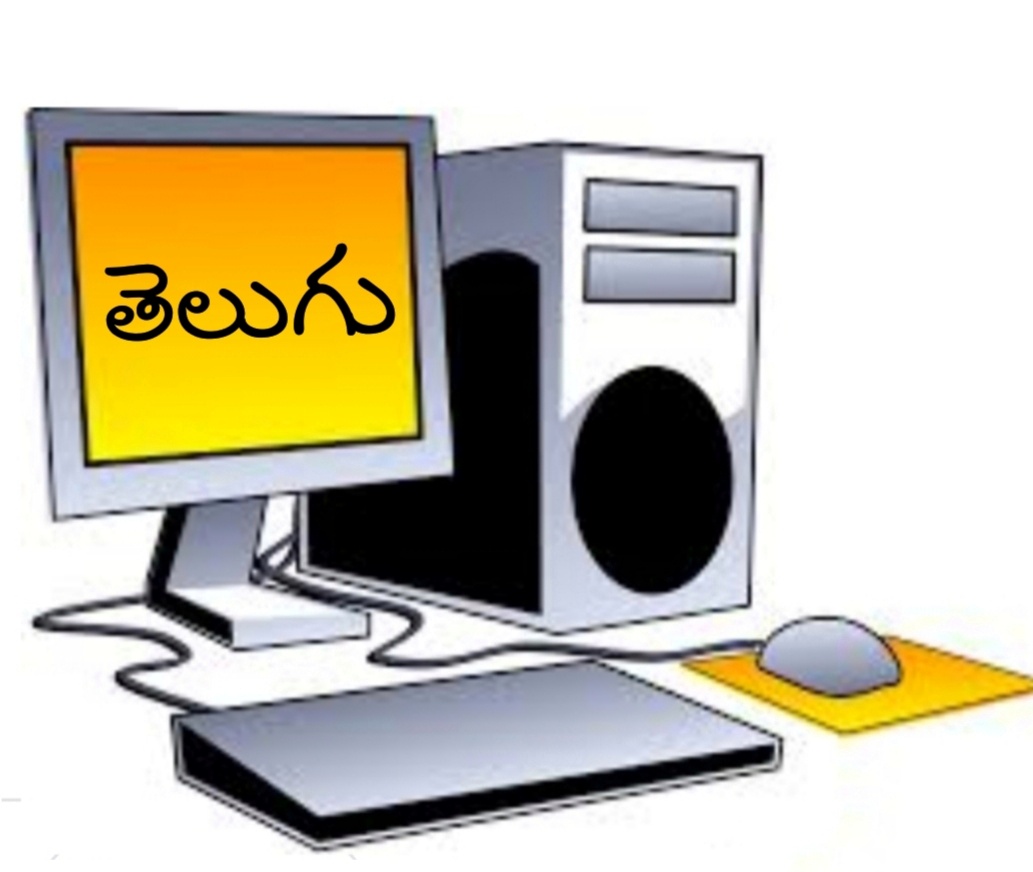
Telugu Online & Expansion
-Dr Geeta Madhavi Kala
Unicode was a revolutionary change in the history of computational Telugu from the early 90s to the current early 2020s. Many of the early sites that started with Telugu for the first time failed because of non-Unicode Telugu scripts.
“Online” means “connecting” a computer to a computer and a network to network. Unicode was able to successfully communicate in Telugu and expand the language. That is to say, Unicode is the standardized code that works everywhere, as stated in the preceding chapters.
Telugu Unicode has opened new doors for e-mails, websites, forums and online dictionaries in Telugu. It has paved the way for Telugu blogs, magazines, and Telugu Wikipedia.
Padma software was a great tool for typing Telugu in Internet Explorer, to translate many Indian language websites from non-Unicode fonts and to transform non-Unicode fonts into Unicode.
It is now easier to write Telugu online with tools like “Lekhini“.
Later on “Google Input Tools” has almost solved Unicode type problems in many languages, such as Telugu.
Apps such as Telugu Indic Keyboard made Telugu typing easy for Mobile technology.
Let’s look into the details of Telugu in the web world at an early stage –
“The Andhra Pradesh Home Page Site, which was launched in 1994, is the first of Telugu websites. It was started by Sujatha Neelam from Oklahoma University and Srinivas Savaram from George Mason University with the help of Padma Indraganti. Basic details of Andhra Pradesh including Geographical, Political and Cultural, etc. were added to this site. This site specialized in the clickable Andhra Pradesh map. Since Sujata and Srinivas finished the study and left, the site did not run for more than a year. The official website of the state government of Andhra Pradesh had not been launched for another decade. (eemata, Suresh Kolichala)
The first Telugu website in the years 1994-95 under the direction of Suresh Kolichala and Padma Indraganti was designed with the intention of making it a literary encyclopedia with Telugu language history, biographies of Telugu writers, literary texts and English translations. A replica of this site in 1995 can be found here.
“Ramana Juvvadi founded lekha.org in 1996 with the intention of developing Telugu software suitable for use on the web and applying the same technique to all Indian languages. RIT software has been developed to run on DOS and Macintosh machines. After Tikkana fonts were released, the Lekha software had been modified to make web pages directly. In those days, emails could be read and written directly in Telugu with the help of Lekha.
Later, Prasad Chodavarapu is credited with producing the Telugu software titled “Rangavalli”. Later, Prasad made a few changes to the same and built it into an email composer called ‘Megha Sandesham’. “Rangavallika” was very popular in those days as a direct translation tool for Telugu without a need to install any software.
Along with Lekha and the Rangavalli, another great source in the public domain to write in Telugu script in those days was the “Telugu Lipi” made by Srinivas Sirigina.
The first Telugu web forum “Telugu Vani” started in 1996 under the management of Kumar Ampani and Madhusudan Oruganti. (eemata, Suresh Kolichala)
It is unfortunate that none of the above websites are now available online. The reasons are unknown but it is very sad that those websites which were a part of Telugu computer history are not alive anymore, where great time, money and effort was spent by many enthusiasts.
Beginning with Telugu forums, expanding into blogs, developing into sites, into media, social media and into mobile phones Telugu is progressing online day by day.
Telugu has not been stopped with writing challenges, now there are many audios, video tools and apps for multimedia communication.
There is an enormous effort of many people hidden behind the computation of Telugu in the fast-growing technologies.
The great Professors who worked at the university level for linguistics and grammar in Telugu and their works are “A Grammar of Modern Telugu” by Prof Bhadriraju Krishna Murthy, “Telugu Vakyam” by Prof Chekuri Rama Rao, “Vyavaharika Bhasha Vikasam” by Prof Budaraju Radhakrishna, “Dravida Bhashalu” by Prof P.S. Subrahmanyam. “Telugu Language & History”, the collections essays by Prof Tumati Donappa, Sri Tirumala Ramachandra and all the above Professors is greatly known as the basis for Telugu linguistics.
Prof Garapati Umamaheshwara Rao has developed linguistics tools such as the Morphological analyzer and pioneered the development of Telugu language in the computer sector.
Andhra Bharati is being developed as a complete online dictionary with a collection of several printed dictionaries.
The “Vemuri Dictionary” by Prof Vemuri Venkateshwara Rao is perfect for modern Telugu language needs.
Chatbots and Voice Assistants in Telugu The current language is under construction for computing the language, needs a Telugu dictionary, synonyms, style attribute, and modern grammar to suit the modern needs of the language.
A modern dictionary, Thesaurus, Style Manual, and a Modern grammar needed for the Telugu language to be adapted to the change in time where Chatbots and Voice assistants are currently in process.
In the coming chapters, I will describe each component of the computation of Telugu language.
*****
